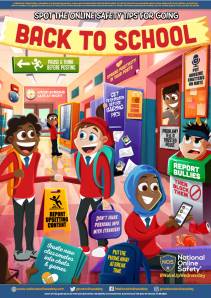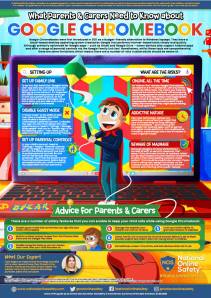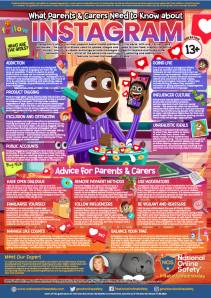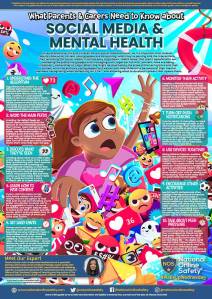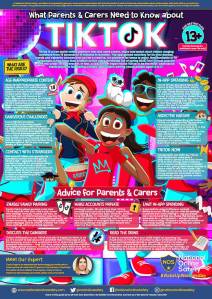Online safety is taken seriously at Shaftesbury High School. We have assemblies about online safety to watch videos describing to our students the risks of having an online presence. This E-Safety page will be developed with relevant content for our students and their parents & carers to use and refer to for help with online safety and understanding the risks of being online and how to manage those risks.
The online safety section of this site is mainly for parents and carers but also for our students and staff to use as a helpful guide. New E-Safety content and sites will be listed here as we add them.
Click here for an amazing hub of resources that help keep your child safe online.
E-Safety
- Anti-Bullying Alliance's interactive anti-bullying tool for parents - The Anti-Bullying Alliance have created a useful, interactive tool for parents to give them information in a visual manner about bullying.
- CEOP - Child Exploitation and Online Protection Command. You can report online abuse to CEOP.
- Childline - Childline give information, advice and support to children and young adults. You can also call them on 0800 11 11.
- NSPCC - A major UK charity looking after children from abuse.
- NSPCC Net Aware - A guide for adults on the social network children and young adults use.
- NSPCC's Pokemon Go guide - The NSPCC has released a guide to the Pokemon Go craze to help parents/carers keep their children safe whilst they are playing the game.
- Parent Info - Help and advice for families in a digital world. At the bottom of this page we have added a feed from Parent Info's site with lots of useful articles and information.
- Think U Know - An education programme from the National Crime Agency and CEOP to help protect children both online and offline. Think U Know has help for children, young adults, parents/carers and professionals working with children/young adults.
- UK Safer Internet Centre - Online safety tips, advice and resources to help children and young people stay safe online.
Online articles from ThinkUKnow for parents to read this summer
ThinkUKnow have produced five articles about online safety for parents to read over the summer holidays.
- What parents and carers need to know about online gaming
- Sharing pictures of your children online
- Keeping your under 5 safe online
- Using parental controls
Are you worried about your child being criminally exploited?
The Children's Society has produced leaflets to help parents who are worried about their children being criminally exploited. Please click on the link below that is in your preferred language.
Information about Twitch
Twitch is an online live streaming video site. Users can broadcast live video games, eSport events, music performances etc. However there are some issues to keep in mind about Twitch.
Please be aware that:
- Users can chat privately. This is called a 'Whisper'. You can limit who can whisper to you in your settings.
- Whilst using Twitch may seem harmless, some of the games being played may have violent content such as the Call of Duty series which often has a rating of 18+.
- There is no child friendly filter. The content that users can view isn't restricted based on the age of the account holder.
- Chat rooms run alongside the live-stream. Content is moderated but this can only happen after it is posted.
- There is advertising along the side of the site.
- Twitchers who stream may use inappropriate language which may be an issue if children are watching.
If you are worried about your child using Twitch, visit their website, Twitch.tv, and have a look around yourself. If your child wants to watch a particular stream, why not watch a few of the streams with your children to help you understand what is being streamed and make a decision about the suitability of the content for your child.
It might be useful to remember that Twitch's terms of service/use state that users between 13 and 18 must use Twitch only if supervised by an adult.
The Twitch site has a 'Report' button next to each user's stream. You need to be logged into the Twitch site to be able to report someone/their streaming content. Certain words can be blocked in the stream's chat such as swear words. You can also block messages, whispers, and invites from people you don't know in the Settings menu.
NSPCC guide to the topic of, "Is my child ready to be left alone?"
As your children get older, they will often want to have a bit more independence and stay at home on their own when you go out. How can you make sure they will be safe when they stay at home? The NSPCC has produced a guide to help you decide whether or not your children are ready for this independence. Please click here to view the guide.




